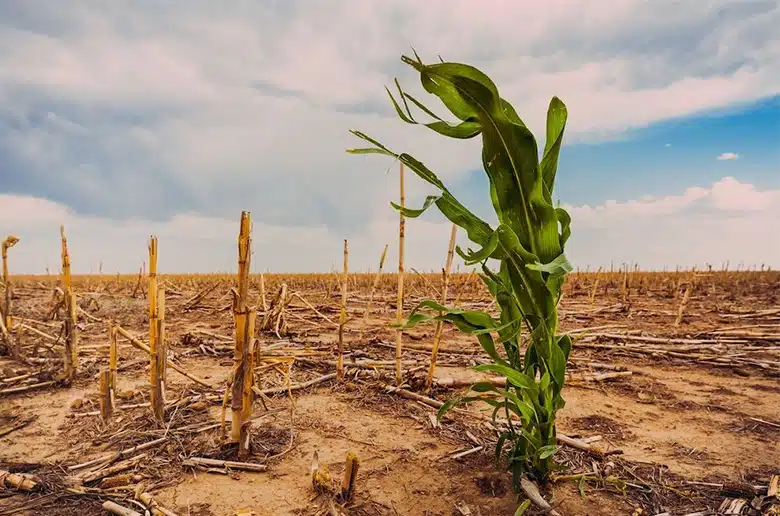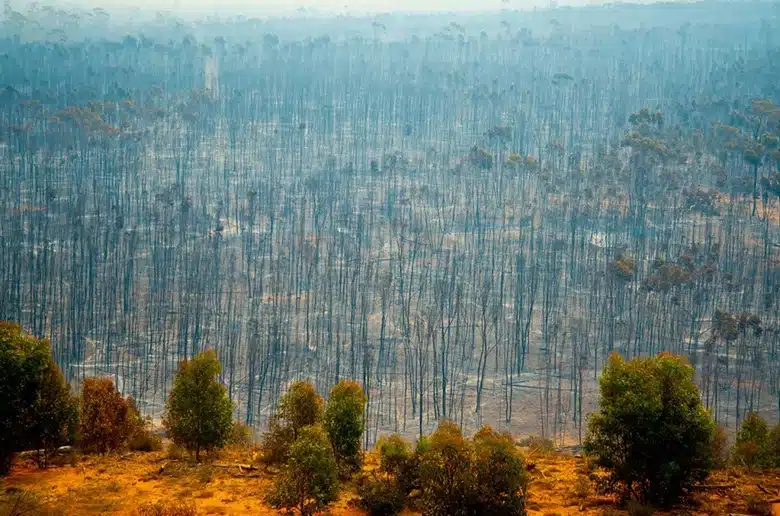The idea of bees vanishing from Earth is scarier than many people realize. These small insects are incredibly important—they help trees, flowers, and other plants grow, which in turn becomes food and living spaces for all kinds of animals. Bees are also essential for farming because they pollinate many of the crops we rely on to feed everyone. If bees went away, nature’s balance would be thrown off, causing disastrous effects. Here’s a list of ten horrible things that could happen if we lost bees:
10. Collapse of the Agricultural Economy
Bees are crucial! Without them, we wouldn’t have many of the fruits, veggies, nuts, and seeds that fill our plates. It would be a big blow to what we can eat, not to mention the financial trouble farmers across the globe would end up in. Farming really needs bees to pollinate crops. Without that, the whole agricultural world could fall apart—hello, unemployment and shaky finances!
9. Soaring Food Prices
If crops don’t grow as much, food prices will shoot up. Staples like bread and rice could turn into expensive treats because there’ll be less of them but more people wanting them. This might make more folks around the world poor and hungry, as many won’t have enough cash for basic necessities.
8. Loss of Biodiversity
If bees were gone, many plants couldn’t make seeds and would die off. This would create a chain reaction in nature. With fewer plants, animal habitats would be different and less diverse, which could make even more species go extinct.

The disappearance of bees would trigger a domino effect, leading to the loss of plant and animal species alike, drastically altering ecosystems.
7. Increased Carbon Dioxide Levels

With fewer plants being pollinated, Earth’s ability to absorb carbon dioxide would diminish, exacerbating global warming and climate change.
Plants are key in taking in carbon dioxide from the air. As plant diversity drops because there aren’t enough pollinators, carbon dioxide levels would rise, worsening the greenhouse effect and accelerating climate change.
6. Deterioration of Human Health
If we lost the crops that provide us with important nutrients, we wouldn’t have as much variety in our food. Eating fewer types of food can cause malnutrition and increase susceptibility to diseases from poor nutrition—this could affect health worldwide like never before.
5. Collapse of Wild Ecosystems
Without bees to pollinate plants, wild ecosystems that depend on a diverse range of life would collapse. The complex connections between plants and animals would break down, causing a significant decline in wildlife species that rely on these environments to survive.
4. Disruption of the Food Chain

The loss of bees would create a ripple effect through the food chain, impacting all levels of biodiversity and leading to unpredictable ecological consequences.
If bees died out, it would trigger a chain reaction in the food web. Without these pollinators, plants wouldn’t reproduce, and animals that eat plants would struggle to find enough food. This shortage would affect every level, right up to the top predators. Ecosystems depend on a delicate balance, and without bees, we could see unexpected environmental consequences.
3. Increase in Mono-cropping
To cope with less natural pollination, farming may shift more towards growing just one or two types of plants in large quantities, using artificial methods to pollinate them. This could reduce the variety of plant life even further and make the crops more susceptible to diseases or pest attacks.
2. Greater Dependence on Pesticides
As mono-cropping becomes more common and we face a decrease in natural pollinators, our crops are at higher risk of pest and disease attacks. This means we’ll rely much more on chemical sprays to protect them. Unfortunately, this isn’t just bad news for the few wild creatures left—it also damages the soil and pollutes the water.
1. Collapse of Global Ecosystems

The ultimate consequence of bee extinction could be the collapse of global ecosystems, an unimaginable disaster that would drastically alter life on Earth.
All these changes add up. We’re losing diverse plant and animal species, disrupting nature’s balance, and emitting more greenhouse gases into the air. This could all lead to global ecosystems falling apart. If that happens, we’re not just saying goodbye to numerous species—we’re also jeopardizing our own survival.
Wrapping things up, it’s clear that bees are vital for maintaining our environment’s stability and supporting life on our planet. If they vanished, we’d see a domino effect of negative consequences affecting all living things. This underscores the critical need to protect bees and other pollinating creatures, not just for their benefit, but for ours too.






